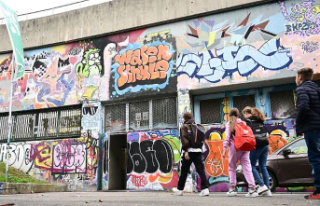Preserving the beauty of historical gardens is a Herculean task for today's garden designers in times of climate change. Some rely on breeds of trees from abroad that are already used to extreme weather.
Heidelberg (dpa / lsw) - According to an expert, climate change is also noticeable in the historic gardens of palaces and castles. "They are our problem children," said the chairman of the German Castles Association, Michael Hörrmann, of the German Press Agency in Heidelberg.
There are around 150 historic gardens nationwide. As a possible consequence of global warming, Hörrmann mentioned that trees suffer from a lack of water and are therefore more susceptible to pests. Earlier flowering times involve a higher risk of frost damage, as he explained at a meeting of representatives of state, municipal and private castles on Wednesday.
The loss of old trees is particularly tragic. According to Hörrmann, the garden artists of the past composed the tree stock according to defining criteria such as color, growth and crown. "If you lose a large tree now, it's like cutting out a part of a painting," Hörrmann explained.
To prevent this, progeny are grown either from seeds of native trees or from seedlings from countries whose trees are better used to drought and cold. For example, oaks from Poland and the Pyrenees are being raised in the Schwetzingen Castle Park. In addition, the trees have to be watered more intensively and closed cisterns have to be put back into operation or new ones built. According to Hörrmann, the garden experts also rely on fungi, which on the roots of the trees immensely improve their ability to absorb nutrients.
But buildings and their inventory are also at risk from flooding. Gypsum and stucco would be damaged by climate fluctuations, said Hörrmann, who is the managing director of the State Palaces and Gardens in Baden-Württemberg.
According to Hörrmann, the castles themselves contribute to climate change with their great appeal: "We are not only victims of climate change, but also perpetrators." Visitors come by car and bus, increasing CO2 emissions. Hörrmann hopes that internet offers can reduce traffic, but not for free. Because the income from visitors contributes significantly to the financing of the cultural monuments.
The state palaces and gardens in the southwest have a budget of 32 million euros this year. The state pays 50 percent of this. The other half is accounted for 75 percent by ticket sales and the rest by income from rentals and leases.












